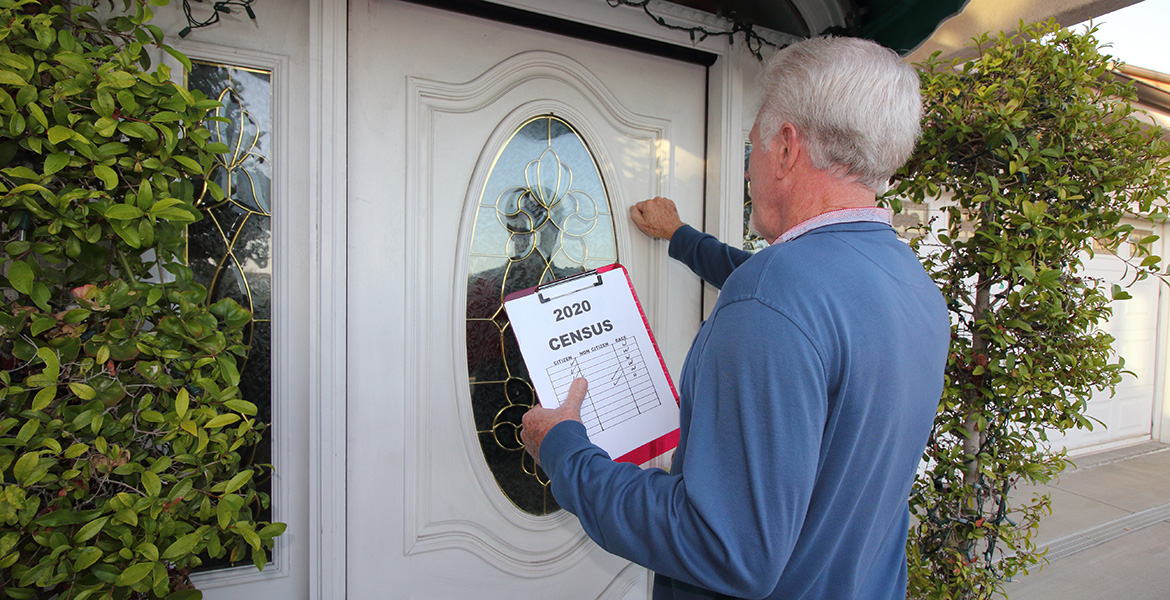
Rural and urban Oklahomans alike urged to take part in upcoming 2020 Census
Friday, January 31, 2020
The Founding Fathers believed an accurate accounting of people living in the United States to be vitally important, and the benefits of taking part in the 2020 U.S. Census remain as noteworthy today as ever.
“More than $675 billion in federal funding is affected by U.S. Census data, so it is important to our local communities and area schools, hospitals, roads and other infrastructure and services that everyone be counted,” said Greg Highfill, Woods County Extension director. “Skipping the census will have a negative effect on our county, and it’s the same no matter the county in which you live.”
It is more than just federal funding of state and local projects at risk, however. Local governments use U.S. Census data for emergency management and public safety planning and resource allocation. Public and private agencies and organizations use U.S. Census data for advocacy and community initiatives that affect the quality of life for Oklahomans and their families.
“Many private businesses use U.S. Census data to determine where to locate new stores or factories, identify places to build new homes and residential facilities, and generally justify investment in a county, region or state,” Highfill said. “Of course, the census also helps ensure that each community gets the right number of representatives in government. Taking part in the census helps ensure our collective voice is heard in Congress and the State Legislature.”
The U.S. Census will be mailing postcards and a letter with online and phone instructions to households in March. Some rural households may get census forms delivered earlier than others to their actual physical address by a U.S. Census representative. Reminder letters and postcards will be sent to non-respondents in April. Census-takers will begin visiting homes that still have not responded in May.
“Census-takers will have federal identification and will never ask for personal information such as bank accounts, social security numbers or credit card details,” said Larry Sanders, Oklahoma State University Extension agricultural policy specialist. “There will be a number to call and verify the identity of U.S. Census workers.”
In all, the 2020 U.S. Census will be more than a yearlong process. Census counts will be delivered to the president and U.S. Congress in December, and will be delivered to states for redistricting by March 31, 2021.
Online is the preferred method of participation, according to the U.S. Census Bureau. Each household will be mailed a unique identification number.
“Using the unique ID number or home address, a representative of the household can complete the survey using a smartphone, tablet, personal computer or public terminal at a place set up for people to come in and complete the census,” Sanders said. “Some of our OSU Extension offices may be offering public terminals in the coming months, though it is still in the planning process.”
Individuals also will be able to phone the toll-free U.S. Census Service Center, using their unique ID number or home address to participate. Unless specifically requested, mail surveys will only be sent to addresses identified as unlikely to participate, and to non-responders.
“The census is easy and quick to fill out, plus it is a constitutional requirement,” Sanders said.
Sanders pointed out data from the census, and all U.S. Census Bureau surveys, are protected by law. Personal information like names and addresses are kept confidential. Statistical summaries of the data for geographic areas and political units are made available, but individual households cannot be identified based on their responses.
Additional information about the upcoming 2020 U.S. Census is available through OSU Extension’s Agricultural Policy and Law website at agecon.okstate.edu/agpolicy.
MEDIA CONTACT: Donald Stotts | Agricultural Communications Services | 405-744-4079 | donald.stotts@okstate.edu
